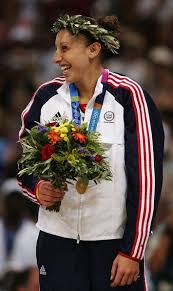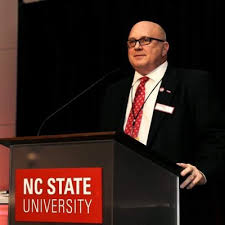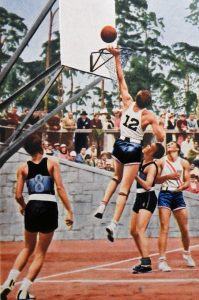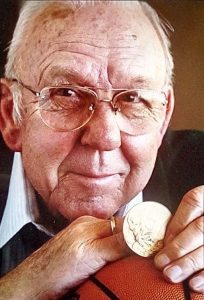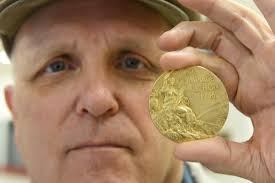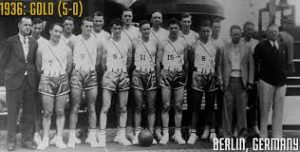The NBA Finals date back to 1947 (when they were known as the Basketball Association of America Finals) and the very 1st NCAA tourney was held in 1939. Olympic basketball competition is even older: it debuted as a demonstration event in 1904 and the men’s version became a medal sport in 1936, with the women finally getting their chance to go for the gold in 1976. The United States has dominated Olympic basketball competition from the start: the men have won 15 gold medals in the 18 tournaments they have participated in during the past 84 years, while the women have won 8 gold medals in the 10 tournaments in which they have competed during the past 44 years. Those of you who were looking forward to the 2020 Olympics opening ceremonies in Tokyo on July 24, 2020 will have to wait an extra 364 days, as the coronavirus caused a postponement until July 23, 2021. Due to the absence of college basketball since mid-March, HoopsHD’s Jon Teitel decided to fill the void by trying to interview as many prior Olympic players/coaches as possible so that you have something to read this summer while not watching the Summer Games. We continue our coverage by chatting with ESPN women’s basketball writer Mechelle Voepel about Diana Taurasi winning 3 WNBA titles and 4 gold medals. Today marks the 16th anniversary of Diana scoring 10 PTS in a win over the Czech Republic in 2004 Olympic round-robin pool play.
In 2000 Taurasi was named national high school POY at Don Lugo High School: what made her choose UConn? She literally came from across the country after growing up in California: she grew up a Lakers fan and seriously considered going to UCLA. Coach Geno Auriemma was a huge factor: he connected with her and challenged her. Diana always had a swagger to her and wanted to be the best and Geno said that if she really wanted to do that she needed to come to Storrs. If you look at which of Geno’s players are most like him I would say Diana.
She went 139-8 during her 4 years in Storrs and was a 3-time All-American/3-time NCAA champ/2-time national POY: what did it mean to her to receive such outstanding honors, and where does she rank among the greatest college players of all-time? You could easily make the case that she is the best overall women’s player for a few different reasons. She has won so many titles and was a big part of all of those teams. Even though she is not a true PG she has the ball in her hands during the most important times to make a play happen. She has mastered the combo-guard position and the individual accolades are great…but if the team does not win then she did not care. She has only been named WNBA MVP once but she is arguably the best player in league history.
In 2004 she was drafted 1st overall by Phoenix en route to being named WNBA ROY: how was she able to come in and dominate right from the start? Her game was pro-ready even while she was in college. She was part of the 2002 team that I think remains the greatest in women’s college history. She had 4 senior teammates who all got drafted but the Huskies won 2 more titles and helped her grow up. I remember talking to her about leadership back in college. She had to be the Rock of Gibraltar (which she was) and Phoenix needed her to come in and be the face of the franchise. She was also on the national team that won a gold medal that summer in Athens.
In August of 2006 she set a league record with 47 PTS/8-16 3PM and had 9 AST in a 1-PT 3-OT win at Houston: was it just 1 of those scenarios where every shot she put up seemed to go in because she was “in the zone”? She can definitely get in the zone. She has 1 of the most effortless-looking perimeter shots you have ever seen, which I mean in the most complimentary way. She is 6’ tall and can shoot from anywhere. It was just 1 of those games that she was not going to lose even if it had lasted 10 overtimes! Her ability to facilitate is also amazing.
She set a WNBA record that year with 25.3 PPG and her 8,693 career PTS is the most in league history: what is her secret for being such a great scorer? She really understands the game so well and is intuitive at breaking down the game both in advance and in real-time as it is happening. She understands the flow of the game incredibly well and is not afraid to miss. You cannot let disappointment impede you from having the ball in your hands with the game on the line. She is willing to be the person who makes it or misses it no matter how big the game is.
She is also the league’s all-time leader with 1,119 career 3PM/2,062 FTM: how is she able to balance being a great long-range shooter while also being able to get to the FT line? She knows how to attack the basket and can see where her opportunities will come from while playing with a fearlessness. She is not afraid of contact and would joke that she gets fouled every single time she drives to the basket. She is smart enough to know that she does not want to rely on just 1 aspect of her game. Growing up she would watch the best men’s players and incorporate some of their skills into her own game. Guarding her is a nightmare even if she is not having her best game: she can burn you with 8 PTS in 1 minute because she is always waiting to strike. When she is having her best game you simply cannot stop her.
Her 10 All-WNBA 1st-Team selections are the most in league history, she was named WNBA MVP in 2009, and in 2011 she was named 1 of the 15 greatest players in WNBA history: where do you think that she ranks among the greatest players in women’s basketball history? I think you can make the case that she is the greatest. There was not great visibility for the sport for much of its early history so it is hard to judge the stars from the 1950s/1960s/1970s, unlike the NBA where you can still watch the best players from back then online. Even with that caveat, we have known how good she is since high school and she has made the most of it. You could put her in any era and she would still be the greatest player, not just due to her scoring but how she inspired her team.
She is a 3-time WNBA champion (2007/2009/2014) and 1 of 4 players to win multiple NCAA titles/WNBA titles/Olympic gold medals (along with Sue Bird/Swin Cash/Maya Moore): what is her secret for winning championships? She has the hunger to win championships and the desire to be the best. I cannot stress enough how good a teammate she is, even during an All-Star Game or while playing overseas. She has your back 100% all the time: not all great players are like that. She will encourage/engage everyone even if you are only playing 3 minutes/game. We have not talked about her defense because she is so great on offense but you cannot reach her level without being a good defender/rebounder. She is top-of-the-line at all aspects of the game.
She has a 50-7 career record in elimination games in the NCAA tournament/WNBA playoffs/Olympics: how is she able to play her best when it matters the most? She really has a sense of the moment. What surprises some people is that she always feels like she has to prove herself, which is similar to Geno. As confident as she is, I think that doubt/worry is part of her fuel, which is something that she has used consistently.
She is a 4-time Olympic gold medalist for team USA (2004/2008/2012/2016): what does it mean to her to represent her country, and do you think that we will see her win gold medal #5 next summer in Tokyo? She has a long history with the national team, having played for them right out of college before she even turned 22. She takes a lot of pride in it and the key for next summer will be her health: she had some back/hamstring issues over the past year and just turned 38 in June. The key is to see if her body will let her play: mentally she has a Mount Everest of experience that you cannot replace. It would mean the world for her since she is near the end of her career.

